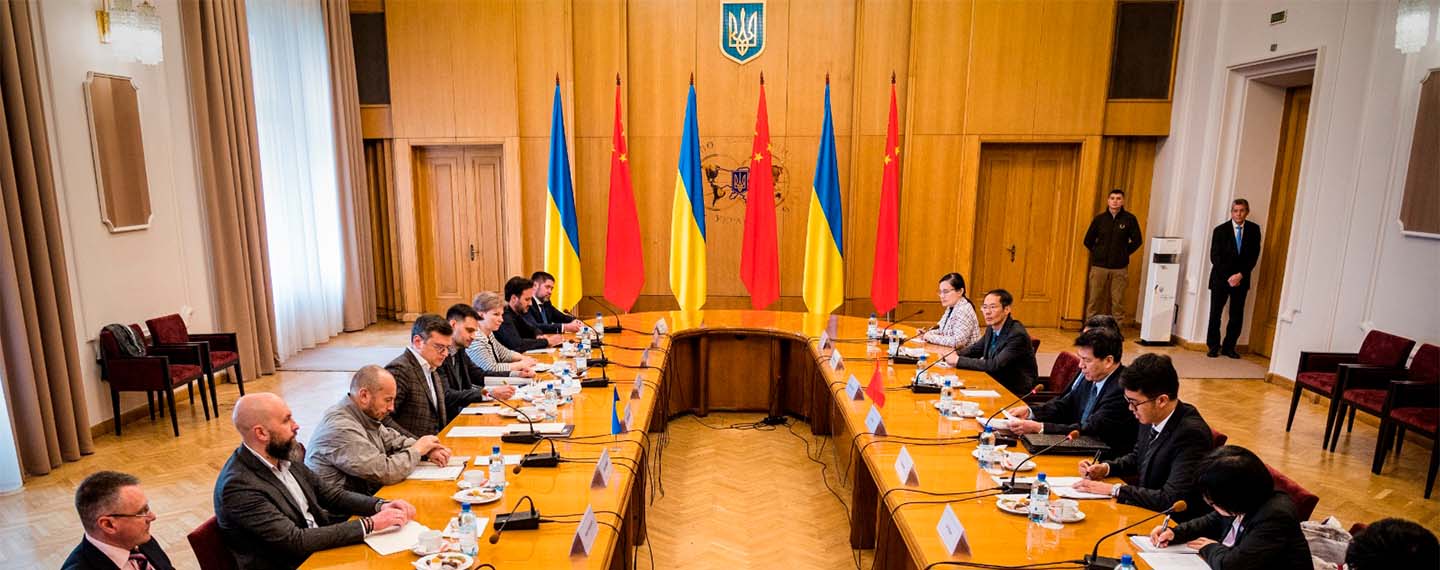*) The original Spanish-language version of this article was published in El Confidencial.
After visiting China for the first time since the pandemic to discuss the Ukraine War and its effects on the new world order, one senses that the country is in a difficult situation, both geopolitically and economically.
A few days ago, at the invitation of the Friedrich Ebert Stiftung, the German foundation linked to the German socialist party (SPD), I had the opportunity to be part of the first delegation of European experts to visit China since the beginning of the pandemic. The aim of the visit was to discuss, again face-to-face, with Chinese experts the war in Ukraine and its impact on the relationship between the EU and China. Shanghai was chosen because, in the current context, it is a city where this topic can be discussed more freely than in Beijing. We had several days of intense discussions with Chinese academics and members of think tanks.
At the beginning, the four European experts who were there explained how we saw the bilateral relationship with a certain critical tone towards China (I, for example, insisted that China had to open up to the outside world) and immediately after that a professor in International Relations responded as follows: ‘Look, before the pandemic, exchanges with Western experts or diplomats always followed the same pattern. You came here to criticise and complain about China and we were forced to defend our country. After listening to you, I see that this has not changed. But this dynamic is counterproductive. You are not going to change China and we are not going to change Europe. We each have many internal problems to solve. There is no doubt, but why don’t we use this time to understand each other better and see where we can cooperate.’
This intervention changed the tone of the conversation and perhaps helped us to have a more fruitful exchange. We did our best to explain the European positions, and they did likewise about China’s. In the following lines I will try to summarise that ‘Chinese view’ of the world.
First, the Chinese reject the dominant view, especially in Central and Eastern Europe (and this was reflected in our exchanges), that the world can be divided today between countries that are friendly to Russia and those that are not. It seems to them a binary view and a reflection of the fact that Europe is finding it difficult to adapt to a multipolar world. More than 140 countries are not applying sanctions against Russia for multiple reasons, but that does not mean they agree with the invasion of Ukraine. China, for example, has not recognised the Russian annexation of Crimea and the 12-point communiqué on the conflict begins with this sentence: ‘The sovereignty of all countries must be respected’. For our Chinese counterparts this is a condemnation of the invasion and a direct criticism of Russia. ‘The Chinese way, and not the European way, but it is a condemnation’, they insisted.
Naturally, our response was to ask why it included the broad description of ‘the sovereignty of all countries’ and not that of Ukraine specifically, and to this the Chinese responded as follows. The relationship with Russia, ‘our big northern neighbour’, has never been easy, and that is why it is important for China to get along with it. They explained that the US policy of containment of China has brought the two countries closer together, but they also pointed out that the joint communiqué of 4 February 2022, on occasion of the opening of the Winter Olympics in Beijing and published only a few weeks before the Russian invasion of Ukraine, said that the partnership between China and Russia has no limits, was a mistake. It is obvious that the partnership has limits, and there is some remorse in Beijing for having signed it, because the phrase has become a hammer used by many Westerners to lump Russia and China together. A Chinese professor said that the communiqué was aimed mainly at the US, but China did not realise that it would have negative consequences in its relations with Europe. And a member of a think tank even went so far as to say that China felt manipulated by Russian diplomacy by having introduced the statement only a few weeks before the invasion.
China as an ally of Russia is generating debate in China itself. Some, the majority, think that some support is inevitable. In the face of the US policy of isolation, China needs a partner like Russia.
Another professor commented: an alternative would have been to act as they did after the attack on the Twin Towers, with China joining the West to stop Russia, just as it once did against global terrorism. But if Beijing had done that, would the US stop seeing China as a strategic threat? Would it lift its sanctions against China? The feeling among Chinese analysts is that it would not. So the decision was made to navigate the situation on the basis of two principles: respect for sovereignty, which has been violated in Ukraine; and respect for each country’s (perceived) security, which in Russia’s case has been threatened. Yes, it is generally thought in China that NATO’s eastward enlargement largely explains the invasion of Ukraine, however much this view is rejected in Europe.
But there are also voices in China that think that supporting Russia is a mistake. They see Russia more as a liability than a strategic asset for China, and they express this publicly. Where there is less debate is in accepting that confrontation with the US is inevitable. Many have given up hope of establishing good relations with the White House, no matter who is President. Seen from Shanghai, the city of business, and abundant with voices critical of Beijing, this has had a great impact. The liberal elites, who have traditionally always had the US as a reference, and therefore sent their children to study there, are divided into three strands of opinion. Many (those who have been able to) have emigrated to the US and other countries that enjoy a greater degree of freedom. Others are disappointed by the anti-Chinese sentiment in the US and have become more nationalistic and even more supportive of the regime (the US being a role model no more), and many others, critical of Xi Jinping’s policies, are simply silent. This gives liberal forces less and less weight in China, which is a tragedy in itself.
Many Chinese participants, in private conversations, acknowledge that the country is undergoing difficulties. The real-estate bubble is deflating, exports and imports are slowing down, investments are not generating the returns they once did, and domestic consumption, despite the opening up after the ironclad anti-COVID confinements, is not picking up as strongly as expected. As a result, youth unemployment is around 20% and this is causing great concern. These same Chinese interlocutors think that the government must withdraw from the economy in order to release market forces again, but at the same time they are aware that in the current context of a ‘siege from the outside’ it is not easy for the government to relax its political control. Quite the contrary. A correspondent of a leading European media organisation said that there are rumours that the government will introduce compulsory military service (in practice, as in theory the law exists but is not enforced because there are sufficient volunteers). With these prospects, it is natural that consumer confidence and expectations are not very optimistic.
Faced with this reality, and with the US being considered a hostile space, Beijing has no choice but to try not to lose Europe and to associate increasingly with the so-called Global South.
In China there is a significant concern that a new Cold War vision is beginning to dominate in Europe, as in the US (the economic security strategy recently published by the European Commission is the latest example of such a trend). It is regretted that the 2020 investment treaty has not been ratified because of mutual sanctions and that China is increasingly seen as a rival. A German political expert was astonished to see that today in Germany (and in the Netherlands) there is almost more talk about China than about Ukraine. Almost all parties have hardened their views on the Asian giant and the German government has yet to publish its own China strategy. The Ukraine-Taiwan connection is rejected out of hand and it is insisted that the bilateral relationship between the EU and China, which in 2022 reached €850 billion in trade, cannot be held hostage to the war in Ukraine. From the Chinese perspective, the conflict is most likely to have an outcome similar to the partition of the Korean peninsula and the EU is urged to work for peace so as not to prolong the conflict.
But, at the moment, it is difficult for this to happen. Indonesia’s proposal for a cease-fire and a demilitarised zone presented at the Shanghai meeting, at the same time that we were in Shanghai, and welcomed by the Chinese participants, was immediately rejected by Kyiv and the European capitals. The Ukrainian counter-offensive is under way and it remains to be seen how far it can go. But, in any case, regardless of the outcome of the conflict, the China factor will remain present. If Russia is finally defeated, will China participate in the reconstruction of Ukraine? The US is likely to refuse, but will the EU also do so, knowing that the cost of the bill will be high? Alternatively, if in the end there is a Korean-style split, will China participate only in the reconstruction of the Russian side, thus cementing the ‘new Cold War’ scenario? Or will it participate in the reconstruction of both sides? For now, Kyiv has not been very critical of China. It seems that Zelensky does not want to see China only as a rival. A position shared by many other Europeans.



